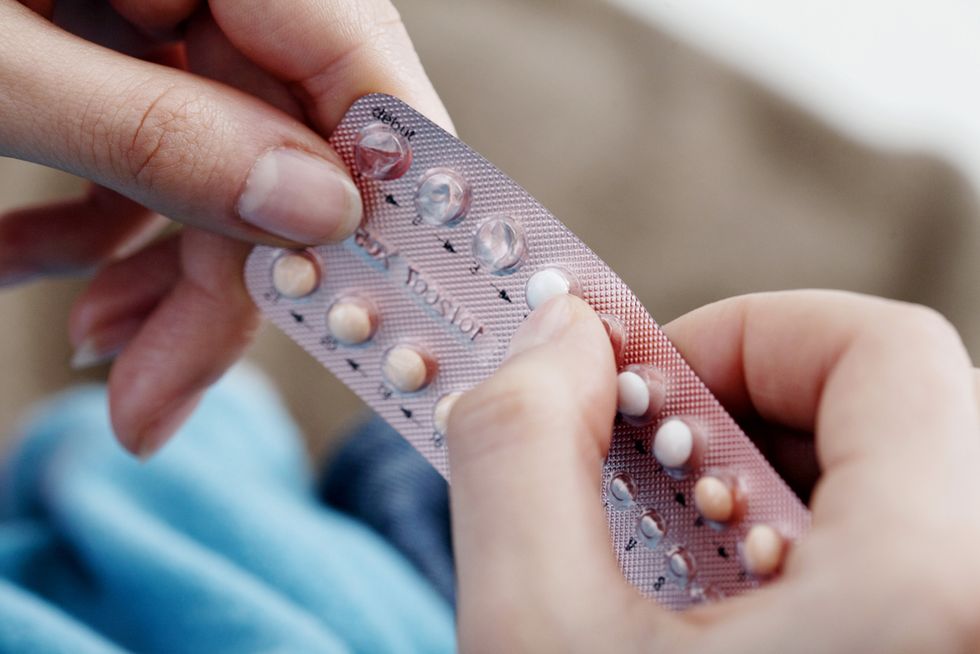
Photo credit: Shutterstock

People taking the pill aren't the only ones not having babies. A new government report shows how the hormones in birth control and a common plastics component can impact the fertility of fish as well.
The research conducted by the U.S. Geological Survey published in the journal Scientific Reports found exposing fish embryos to "estrogenic chemicals" in a laboratory setting lead to "a significant reduction in the fertilization rate in offspring two generations" later. Three generations later, the researchers wrote that they also saw "a reduction of embryo survival in offspring."
"These adverse outcomes may have negative impacts on populations of fish inhabiting contaminated aquatic environments," the study authors wrote.
This isn't the first time human birth control hormones have been implicated for their affect on aquatic systems. The "transgenerational consequences" of the chemicals were not well researched, however, until now.
"This study shows that even though endocrine disruptors may not affect the life of the exposed fish, it may negatively affect future generations," USGS visiting scientist Ramji Bhandari, who is a professor at the University of Missouri, said in a statement. "This is the first step in understanding how endocrine disruptors affect future generations, and more studies are needed to determine what happens in the natural environment."
The level of bisphenol A and 17a-ethinylestradiol the fish were exposed to in the lab was higher than the concentration that could be present in the environment, but the scientists believe their findings confirm the concern over the impact the chemicals could have on aquatic life.
17a-ethinylestradiol specifically is a hormone in oral contraceptives, and up to 68 percent of it is excreted by the person taking it. Bisphenol A is a common chemical used in plastic manufacturing.
The Washington Post pointed out this week that "gender-bending," likely caused by chemicals in the water, was found in 50 to 100 percent of bass caught in the Potomac River.
"We know intersex is occurring, we don’t understand exactly how that’s occurring," Don Tillitt, study co-author and scientist at the USGS's Columbia Environmental Research Center, told the Post. "We know that certain endocrine disrupting chemicals can cause intersex from exposure during development or the birth cycle."
Going forward, the researchers wrote that future studies should investigate the transgenerational affects of these compounds in a natural fish population.
(H/T: KPIX-TV)
—
Front page image via Shutterstock.